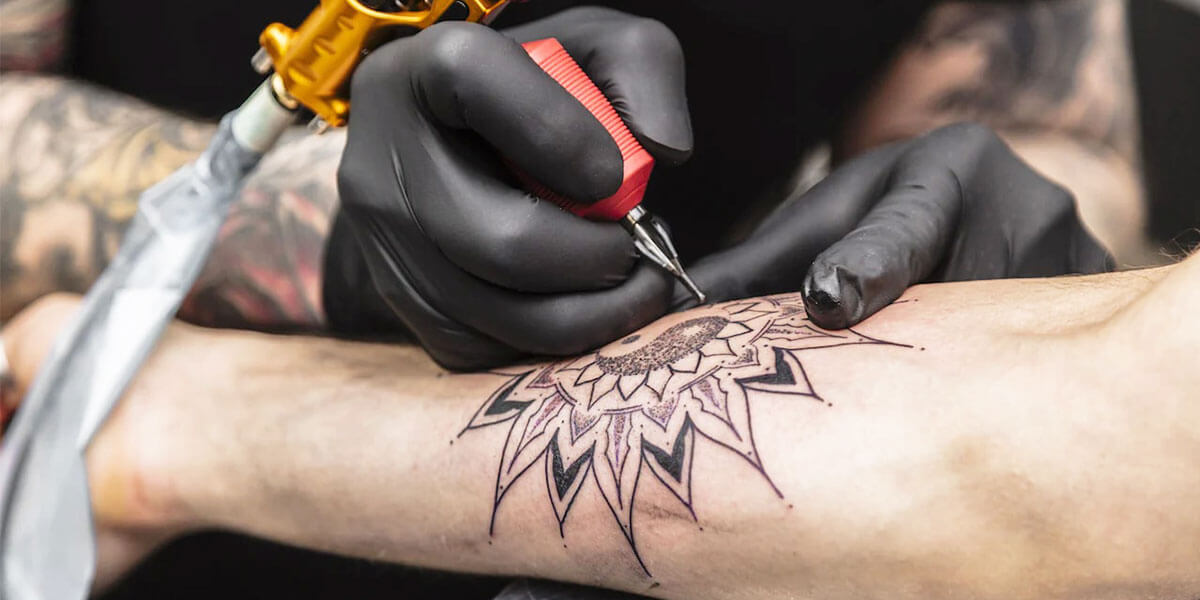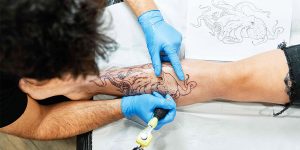When considering a new tattoo, timing is everything, especially when an unexpected bruise appears just before your scheduled session. It’s a common concern: can you safely tattoo over a bruise, or should you postpone your appointment? Understanding the implications of inking over bruised skin is important for both the quality of the tattoo and the health of your skin.
Bruises and their healing process
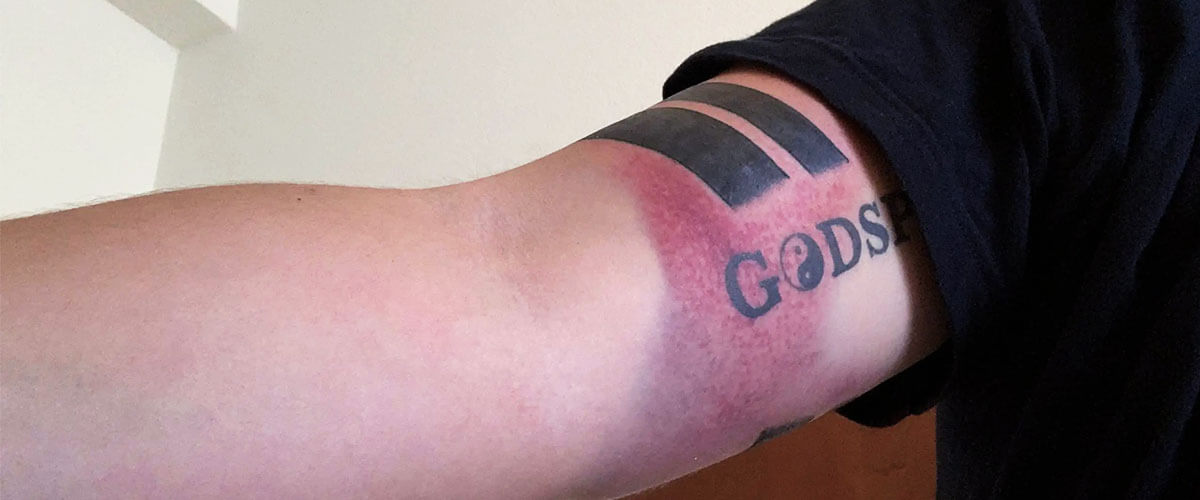
Bruises, those unsightly blue, purple, or yellow marks on the skin, are more than just a cosmetic concern. They’re the result of an injury causing tiny blood vessels, or capillaries, to break and leak blood under the skin’s surface. This blood pooling is what gives bruises their distinctive color.
The healing process of a bruise is a fascinating journey through color and time. Initially, a bruise will appear reddish, a sign of fresh blood under the skin. Within a day or two, the bruise darkens to a blue or purple color due to the lack of oxygen in the trapped blood. As the body metabolizes the blood, the bruise turns yellow or green, signaling the healing stages. Typically, a bruise will heal and fade away within two weeks, though this can vary.
Several factors influence the speed of a bruise’s healing. Age is a significant factor; older individuals may find their bruises healing longer. Nutrition plays a role, too; deficiencies in vitamins like Vitamin C and K can slow down the healing process. Overall health and medication can also impact healing times. For instance, people on blood-thinning medications may bruise more easily and take longer to recover.
Risks of tattooing over a bruise
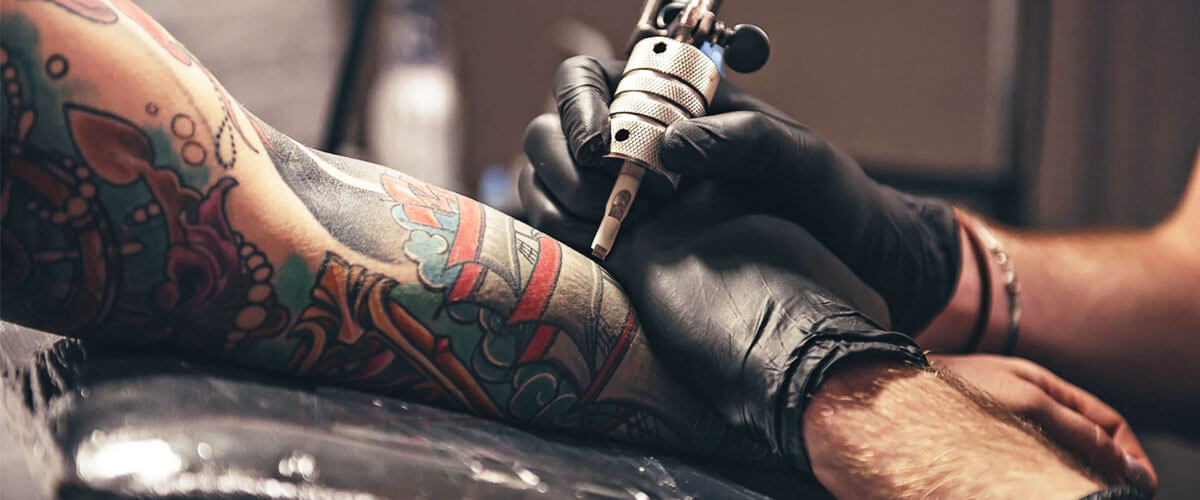
Tattooing over a bruise, while tempting, introduces several risks that can complicate both the tattooing process and the healing of the tattoos and bruising itself.
Pain and sensitivity
A bruise is an indication of trauma to the skin and underlying tissues. When these areas are already sensitive and inflamed, introducing a tattoo needle can exacerbate the pain. The usual discomfort of tattooing can be significantly heightened when the skin is bruised, leading to a more uncomfortable experience.
Risk of infection
The integrity of the skin is compromised when bruised, making it more susceptible to infections. Tattooing involves repeatedly piercing the skin, which can introduce bacteria into the wounded area. The body’s natural defense mechanisms are already engaged in healing the bruise, and adding the stress of a tattoo can overwhelm these systems, increasing the likelihood of infection.
Complications in healing
When a tattoo is placed over a bruise, the healing processes of both the tattoo and the bruise can be adversely affected. The bruise’s healing may be prolonged as the body has to deal with the additional trauma from the tattoo. Similarly, the normal healing process of a tattoo might be compromised due to the underlying bruise, leading to potential complications like distorted healing, increased scarring, or uneven coloration.
Color distortion
The presence of a bruise can significantly affect how tattoo ink appears on the skin. The changing colors of a healing bruise can mix with the tattoo ink, leading to unpredictable color outcomes. This can be particularly problematic with lighter inks, which might not cover the bruise effectively or may look different once the bruise heals and the skin returns to its normal color.
Why do tattoo artists avoid tattooing over bruised skin?
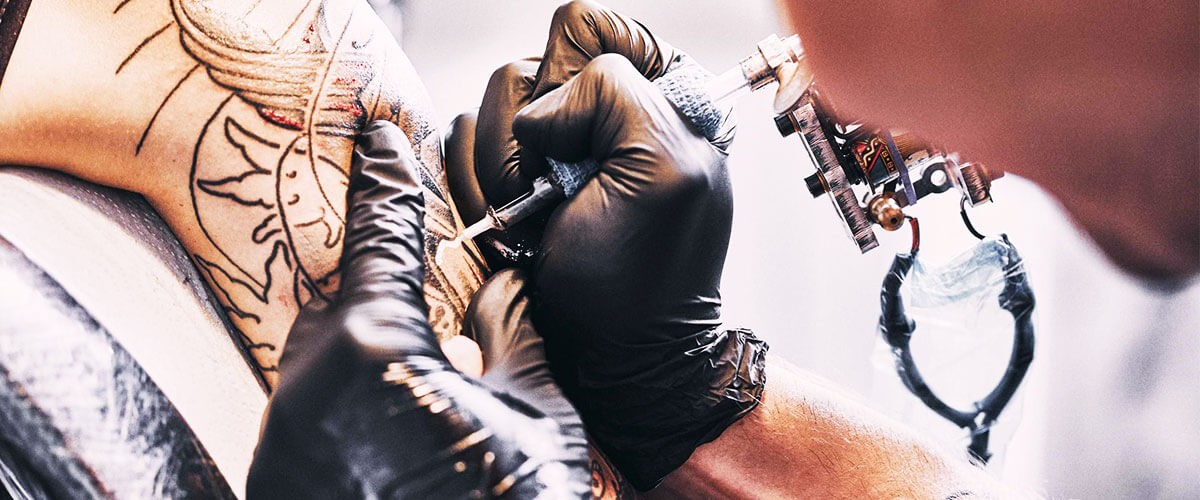
Tattoo artists typically are reluctant to tattoo over bruised skin for several key reasons, prioritizing the quality and integrity of their work. Firstly, damaged skin from a bruise can adversely affect the appearance and quality of the tattoo ink. The bruised area might not hold the ink as well as healthy skin, leading to patchy or uneven application.
Moreover, tattooing over a bruise can lead to complications in healing. The combined trauma of the bruise and the tattoo can prolong the healing process, increasing the risk of infection and potentially leading to scarring or uneven healing of the tattoo.
Additionally, tattooing on bruised skin can be more painful for the client. Since the skin is already sensitive and inflamed due to the bruise, the tattooing process can cause additional discomfort, which is something most artists prefer to avoid for the sake of their client’s experience.
Lastly, artists are concerned with the artistic integrity of their work. They strive to produce high-quality tattoos, and tattooing over a bruise compromises this. The unpredictable nature of how the tattoo will heal on bruised skin can affect the final appearance of their art.
For these reasons, most tattoo professionals recommend waiting until a bruise has completely healed before proceeding with a tattoo. This approach ensures the best possible outcome for both the appearance of the tattoo and the health of the skin.

